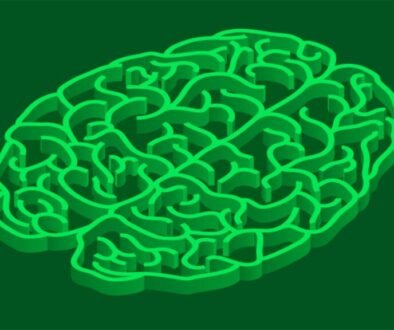What is a low carbohydrate diet?
[ad_1]

Vegetarian regimes can reduce the risk of heart disease and death
Covering more than two decades of research, a new complete study now highlights the deep protective effects of plant -based eating habits.
without brand – lifestyle
Although the diets can certainly go from healthy and useful to disturbing and even dangerous, they all have at least one thing in common: the emphasis on reductions and eliminations. Examples include the Mediterranean diet recommend that it reduce processed food and red meat, the whole diet 30 eliminating sugars and alcohol added for a month or the carnivorous diet asking its participants to exclude fruits and vegetables. Even the healthiest diets like the Dash diet recommend limiting sodium intake.
Although some food exclusions have more sense than others, some foods seem to be recommended particularly often. One of the most targeted nutrients in most of the most popular regimes is carbohydrates.
What are carbohydrates?
Carbohydrates, commonly known as carbohydrates, are sugars in specific foods. They are important because they are the main source of energy of the body.
There are two main types of carbohydrates: simple and complex. Simple carbohydrates are natural and digestible sugars such as those found in foods such as milk (lactose), table sugar (sucrose) and fruits (fructose). Complex carbohydrates are starchs and fibrous parts of food that the body does not digest. Complex carbohydrates are commonly found in starchy vegetables such as potatoes and corn or transformed grains such as rice, bread, cereals and pasta.
Simple and complex carbohydrates are broken down by the glucose body, which is transported to cells, muscles and organs to provide energy.
What is a low carbohydrate diet?
A low carbohydrate diet aims to limit the amount of carbohydrates you eat. Most healthy adults eat between 225 and 325 grams of carbohydrates per day, but low -carbohydrate diets recommend considerably reducing this quantity to more than 130 grams per day. “Some are limited to 20 to 60 grams of carbohydrates per day,” explains Leslie Bonci, sports dietitian for Kansas City chiefs and founder of Active Eating Advice.
Such restrictions occur by reducing candy and sugary drinks, starchy vegetables and transformed grains. The “total carbohydrates” of a food are listed on its nutritional fact label.
People with diet are encouraged to replace foods rich in carbohydrates with low -carbohydrate alternatives such as chicken, seafood and lean beef, as well as fruits such as apricots, oranges, avocados, raspberries and lemons. Vegetables such as broccoli, tomatoes, mushrooms, onions, kale and asparagus are also included in most low -carbohydrate diets – just like eggs, cheese, Greek yogurt and nuts like nuts, peanuts, nuts of macadamia and pistachios.
“The objective of a low -carbohydrate diet is to eat more protein and fat for nutrients and energy instead of carbohydrate -rich foods,” explains Lisa Young, a recorded dietitian nutritionist, author of “Final Full, Final Slim” and assistant nutrition teacher at New York University.
Some of the lowest carbohydrate -carbohydrate diets include the ketogenic diet (keto), the Paleo diet, the South Beach diet, the Dukan diet and the Atkins diet.
Are low-carbohydrate diets good or bad for you?
Like most regimes, there are advantages and disadvantages of low -carbohydrate diets. Some of the advantages include a decrease in the risk of certain mental and physical health problems, an improvement in blood pressure and a reduction in caloric intake, which can help lose weight. Young says that low -carbohydrate diets can also be useful for regulating blood sugar because they recommend low food on the glycemic index and generally provide lowered triglycerides – a type of blood fat that can increase your risk of heart disease.
The emphasis on higher quantities of fat and protein “can also feel more full and less hungry between meals,” explains Bonci.
But low -carbohydrate diets can also be disadvantageous by being “difficult to maintain and can unnecessarily restrict nutrients such as fruits, beans and whole grains”, explains Young. These foods, she says, “are essential for daily intestinal health, heart health and general well-being.”
Long -term membership in stricter carbohydrate more strict diets, adds young people, can also “lead to an increase in cholesterol levels from excessive saturated fats and nutritional deficiencies”. Low carbohydrate diets have also been clinically associated with constipation (due to the lack of fiber), the increased mood and risk of kidney stones.
Bonci stresses that low-carbohydrate diets can also be expensive “, as foods generally containing carbohydrates are cheaper than protein foods,” she said. Certain low -carbohydrate plans, especially those with designated meal plans – can be expensive.
In the end, “being aware of excessive carbohydrates is intelligent, but the balance is essential because too restrictive diets can turn against him,” warns young. “A sustainable and healthy diet includes a variety of nutrients rich in balanced parts.”
[ad_2]




